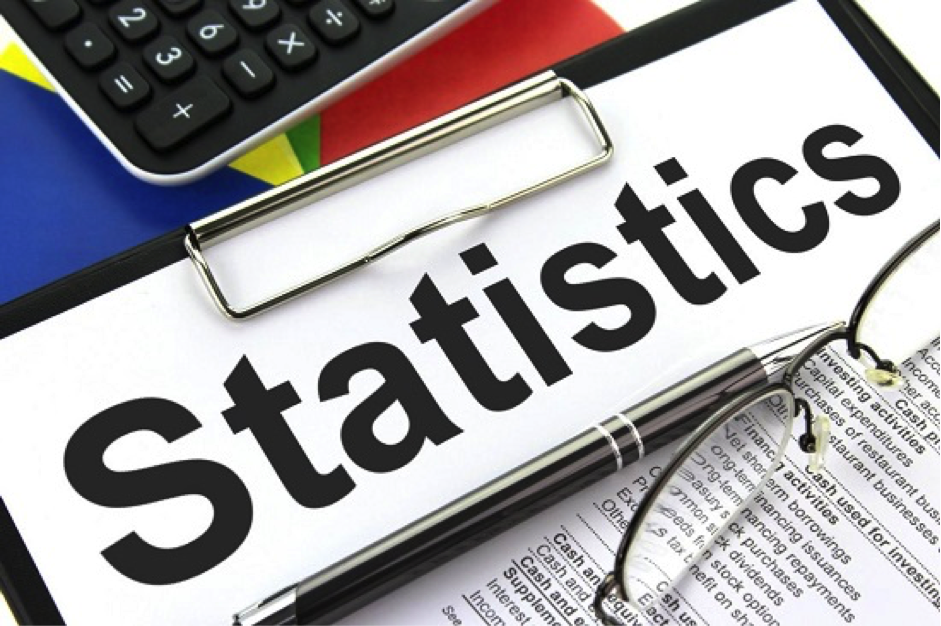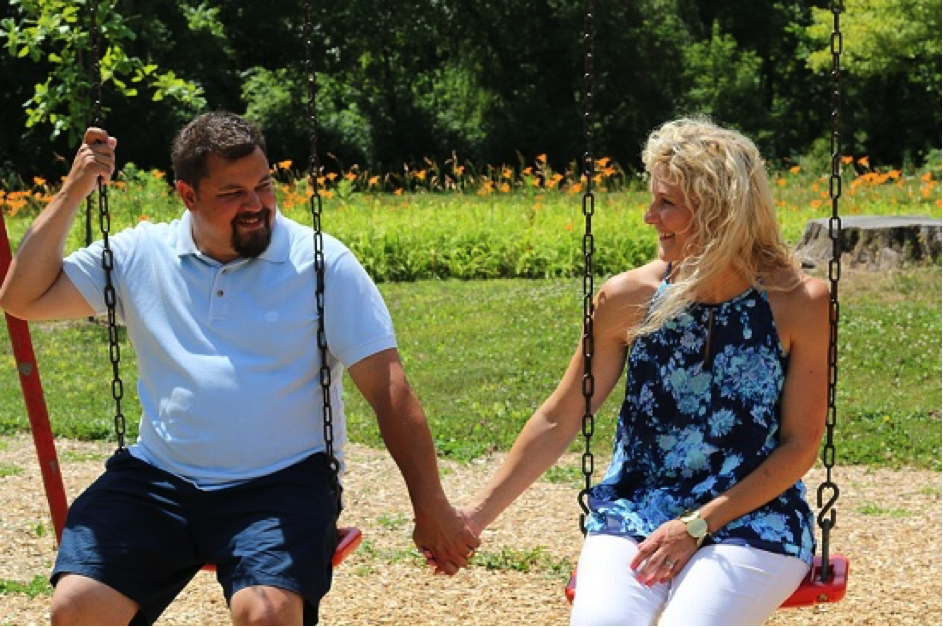Online Dating Trends – Technology Impact Across Generations Infographic

We love all things dating, and recently we’ve been doing a spot of research about online dating trends through the different generations. In this infographic, we explore the impact technology has made on dating through the ages.
Online Dating Trends Infographic Dating Age Groups
For looking at online dating trends, the following age groups have been used in this infographic [1], to describe dating attitudes and behaviour. These are the commonly accepted boundaries between each generation:
- Generation Z (born 1993-1999) – 18 – 24 year olds
- Generation Y (born 1983-1992) – 25 – 34 year olds
- Xennials (born 1973 – 1982) – 35 – 44 year olds
- Generation X (born 1963-1972) – 45 – 54 year olds
- Baby Boomers (born 1953-1962) – 55 – 64 year olds
- The Silent Generation (born 1952 and earlier) – 65+

Why Choose A Traditional Dating Site Over A Dating App?
As a traditional style dating website, Urban Social is proud of our dating site and believes there are a many reasons to choose a traditional dating website over and above the fairly new dating apps. Here we list some of the main benefits:
- Advanced search – search preferences can be filtered from the many options, apps can be cumbersome to achieve the same level of choice
- Get what you pay for – paying to use the service leads leads to higher time investment and emotional commitment
- Lower risk – there are increased levels of security, safety and protection – which in this modern-age is all-important
- More thorough – the increased level of detail makes selecting the ideal partner likelier
- Relationship focused – these websites are more relationship than date focused

Classic Characteristics Of The Generation Groups
We have identified six different generations in our online dating trends infographic – Generation Z, Generation Y (Millennials), Xennials, Generation X, Baby Boomers and the Silent Generation.
Each generation has its own unique identities, although do some blur between each one. Technology familiarity and usage is a clear differentiator between each generation.
For each of the six, we have explained the origin of the name, the years of birth that generation belongs to and some typical traits for that generation.
Generation Z (1993-1999)
- Name origin – “Generation Z” is a natural extension from the Generations X and Y which immediately preceded this generation
- Generational traits typical of generation Z include:
- Volunteering – this generation is more likely to volunteer, after all not everything is about “money”
- Strong eco-awareness – have an awareness of the “planet” and are keen to help protect it for future generations
- Cynical and realistic – growing up with the financial crisis and rise of terrorism has caused cynicism and realism to set in
- Technology lifestyle – technology is as important as air and water! Many from Generation Z, multi-task using multiple technologies at the same time!
- Benching – known for benching, having had dates and not planning any more, they still keep their date partner “warm on the bench”
- Freelance entrepreneurialism – have an increased desire to be entrepreneurial and self-reliant, they love the gig economy and various types of freelancing
- Spontaneous lifestyle – they value spontaneity and adventure and very much like to invest in life experiences (e.g. backpacking and travelling the world for a year)
Generation Y – sometimes called “Millennials” ( 1983-1992)
- Name origin – Millennials commonly used to describe the group reaching adulthood around the year 2000
- Generational traits typical of generation Z include:
- “Me Me Me” – Also called the “Me Me Me Generation”, they want it and want it now!
- Collaboration – like to collaborate, be involved and are typically “open” and “transparent”
- Lovers of technology – can’t live without tech and social media, but have less inter-personal skills than previous generations due to this reliance
- Ghosting – some millennials tend to end relationships by “ghosting”, i.e. the sudden withdrawal of all communications
- Family above careers – have a tendency to sacrifice careers for family values
Xennials (1973-1982)
- Name origin – A blend of Generation X and Millennials traits
- Generational traits typical of Xennials include:
- Technology appreciation – having grown up with analogue “an AOL dial-up adolescence”, they appreciate digital all the more! They can remember a time before social media (just about!)
- Less work-oriented – are less loyal to companies, have seen hire/fire workplaces, major recessions and rise of zero-hour contracts
- Friends with benefits/F buddy – many hook-up with friends for sex without a relationship
- Cynical, optimistic and driven – much less cynical and pessimistic than many in Generation X!
- Communication – are comfortable with both landline phones (but prefer mobiles) and writing letters (but prefer to text)
Generation X (1963-1972)
- Name origin – This is taken from the novel, “Generation X“, which was written by Canadian author, Douglas Coupland
- Generational traits typical of Generation X include:
- Work/life balance – aim to try for work/life balance, they try to rebel against the workaholic nature of the baby boomers
- Pessimistic outlook – they tend to be more pessimistic more than other generations, probably due to events and circumstances they have seen
- Late technology adopters – they became adults before technology became mainstream. They like technology, but are not as fanatical as later generations
Baby Boomers (1945-1962)
- Name origin – Named due to the massive birth rate increase following World War II
- Generational traits typical of the baby boomers include:
- Technology “a curse” – they grew up writing letters & making phone calls, becoming technology aware much later. Many baby boomers see technology often as much a curse as a blessing!
- Work first focus – they value relationships, but generally put work first. Independent and self-assured, they believe in working hard and being loyal to employers
- Quality focus – they positively seek out quality and will be challenging when they receive a low-quality service
- Prosperous – have final salary pensions, house price profits and were the first recent generation not to have to fight in a war
The Silent Generation (1925-1945)
- Name origin – refers to a generation which were “silent” and followed the rules
- Generational traits typical of the baby boomers include:
- Change averse – a generation which doesn’t like change, instead it values stability, consistency, safety and security
- “Techno phobes” – grew up well before technology (which can be viewed with fear), many use mobile phones, but there is low use of social media
- Face to face – like to meet face to face or phone people rather than texting or instant messages
- Respect authority – they like and respect authority, they were taught to “respect their elders”
- Tolerant – generally, they are less tolerant and liberal and may have some learned discriminative traits
Dating Statistics – Did You Know?
We published some of the statistics we gathered in our research in the “Do you know?” section of the infographic.

There were too many to list in the online dating trends infographic. Here are some of the other dating stats we found.
- In 2015, Pew Research (#2) reported the following stats. These reveal by age group the % of people who had ever used a dating website and/or dating app:
- 18 – 24 – 27%
- 25 – 34 – 22%
- 35 – 44 – 21%
- 45 – 54 – 13%
- 55 – 64 – 12%
- 65+ – 3%
- Results from surveys of singles have revealed some interesting results:
- 25% more marriages founded offline end in divorce compared to online (#5)
- 33%+ – over a third of all marriages between 2005 and 2012 started online (#5)
- 38% said that they had used dating websites and apps to meet a partner (#5)
- 43% said that they Googled prior to a first date (#3)
- More than half said online dating allows people to find a better match (#4)
- 6 in 10 said online dating was a great way to meet a partner (#4)
- 7 in 10 people believe in love at first sight (#4)
- 8 in 10 people lied on their dating profile about height, age or figure (#4)
- 15 minutes was the average time a woman had to attract a man (#3)
- 1 hour was the average time a man had to attract a woman (#3)
Urban Social Statistics – The Importance of Looks
To accompany this online dating trends infographic Urban Social created a poll of our own. This was available on our site for visitors to complete. A snapshot of the findings are detailed in the infographic. Further findings are below:
- The importance of looks by age category were:
- 18 – 24 – Men 70%, Women 0%
- 25 – 34 – Men 43%, Women 8%
- 35 – 44 – Men 26%, Women 5%
- 45 – 54 – Men 21%, Women 14%
- 55 – 64 – Men 24%, Women 7%
- 7 in 10 women believed that dating sites are used for relationships instead of casual encounters
- 6 in 10 believed that a long happy relationship is more likely on a dating site than a dating app
- 35% think dating apps are more about looks, with women more likely than men to think this is the case
- 18-35’s are more likely to be using apps than older generations
- Over 35’s are more likely than the younger generation to be using a dating site

Our conclusions from the poll are that traditional dating websites provide more of an opportunity to showcase your own personality and find matching personalities in detailed dating profiles.
Sites are used more often by over 35’s. 70% of men under 24 class looks as the most important factor when choosing a date. Compared to NO women who found this important. For men, this declines over time but is still the most important factor for around 1 in 4 men for all ages. For women, this is of low importance in all age groups.
So, join a dating website like Urban Social to develop a long-term meaningful relationship based on a lot more than just looks!
Dating Language
We also looked into dating language and the various terms that spring up across the generations. Although this information was cut from the final infographic to keep the design as compact as possible, you can find them here.

In our online dating trends analysis, we found that jargon and terms used through the ages do vary. We list some below and whilst a number belong in more than one group, we allocate each to the most likely age group:
Generation Z (18 – 24 year olds)
- Benching – after date(s), no more planned, but other person is kept “warm on the bench”
- Layby – whilst in a relationship, the person wants out but is looking for a new partner
- FBO – Facebook official – relationship status on Facebook is changed to “in relationship”
- Netflix and chill – invitation to partners house to watch movies, which may lead to sex
Generation Y (25 – 34 year olds)
- DM – stands for “direct message”, which is direct contact through a social media channel
- Ghosting – ending a relationship without explanation by ceasing all contact
Xennials (35 – 44 year olds)
- “DTR” or “define the relationship” – a point in the relationship where it becomes official
- Friends with benefits – to hook up with friends for sex without a relationship
- F*** buddy – regular sex with a friend/acquaintance without a romantic relationship
Generation X (45 – 54 year olds)
- Dumping – to ‘dump’ someone and actively decide to finish the relationship
- Playing hard to get – pretending to be less interested in a romantic relationship than is true
- Two timing – a person in a second relationship that is without the knowledge of their partner
Baby Boomers (55 – 64 year olds)
- Bases – 1st base, 2nd , 3rd base and then onto a home run
- Free love – freedom of sexual expression, outside marriage often with many partners
- Going steady – A relationship beyond early stages, now considered an item.
The Silent Generation (65+)
- Courting – to pursue a partner romantically to see if they are right to marry.
- Little black book – Book – names, addresses, phone, etc. Preceded dating websites/apps
- One-night stand – A one night only liaison with “no strings attached”
Other dating and technology articles from Urban Social
If you’ve enjoyed this technology related article about online dating trends, here are some other articles from our blog you might also enjoy.
- Dating Advice for Men – Best Way to Message a Girl Online
- How to Create the Best Online Dating Profile Photo
- The Perfect Online Dating Profile for 2018
Sign-up to Urban Social today!
We really hope you’ve enjoyed reading through this online dating trends infographic and found it a learning experience, which in parts it was for us too! If you’re single and looking for romance, what are you waiting for? Sign-up to Urban Social today, if you want to contact us, all our contact details can be found at our Contact Page.
Information Sources:
The following sources have been used in designing the infographic:
- https://www.careerplanner.com/Career-Articles/Generations.cfm
- http://www.pewresearch.org/fact-tank/2016/02/29/5-facts-about-online-dating/
- http://www.statisticbrain.com/dating-relationship-stats/
- https://infogram.com/uk-online-dating-statistics
- https://www.creditdonkey.com/online-dating-statistics.html
Image Credits: Kevin Phillips, Alpha Stock Images, Adam Kontor and Vander Suzy


